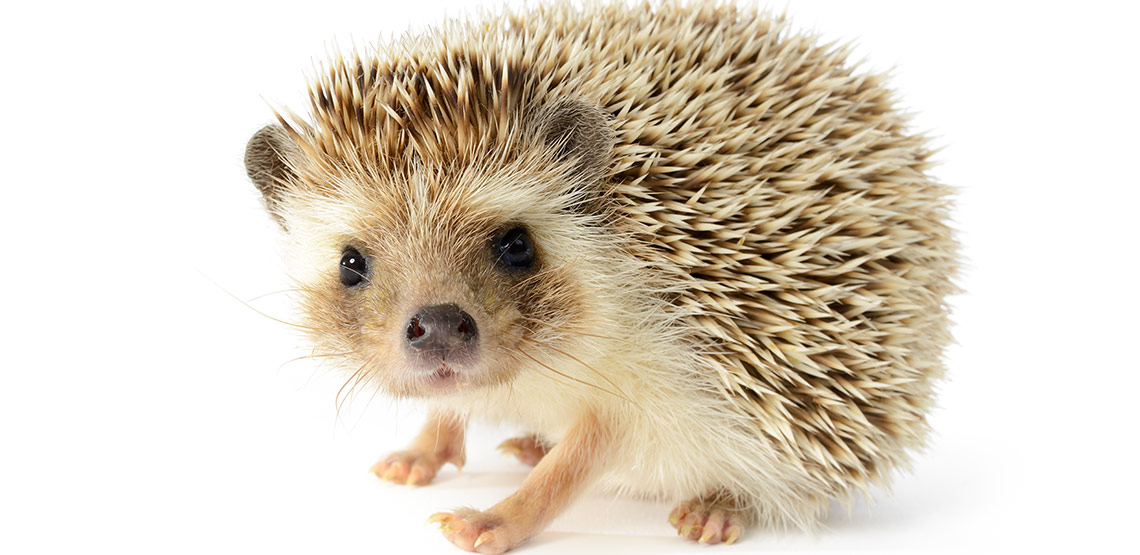All About Pet Hedgehogs
The hedgehogs kept as pets in North America are Pygmy hedgehogs, which were originally brought over from Central Africa. They're considerably smaller than other hedgehogs, and though they bear some resemblance to porcupines, their quills are not nearly as long or sharp. In fact, one of the best things about a pet hedgehog is picking them up for a little cuddle -- who can resist that adorable little face, after all?
Pet hedgehogs are generally fairly easy to care for, but they do require a special routine that may not work for other small mammals. Learn what to feed, where to house and how to spot health problems in hedgehogs so your bristly little friend can stay healthy for years to come.
Tips for Keeping Hedgehogs as Pets
Feeding: Hedgehogs are omnivores, which means they're considerably easier to feed than sugar gliders or another very exotic small mammal. A good quality commercial hedgehog food should make up the majority of the diet, but you can supplement with tasty treats like crickets, mealworms or fruits a couple times a day.
Housing: Most experts agree that you should stick to wire cages, as glass aquariums won't provide very good ventilation for your hedgehogs. But there's more to consider than ventilation when you keep hedgehogs as pets: the size of floor space, distance between the wires and type of flooring will all play a role in hedgehog health and safety. Start with a moderately-sized rabbit cage with wire bars no more than ½ inch apart, then insert a base, nesting material and accessories to complete your hedgehog's new home. Finally, unlike guinea pigs, hedgehogs are solitary creatures and should be kept one to a cage to avoid over-breeding or fighting.
Related Search Topics (Ads):
Bathing: Hedgehogs can keep themselves fairly clean, but you will need to wash them once in a while to remove any built-up dirt and eliminate the smell. Begin with a sink full of lukewarm water and some gentle baby shampoo. Work the shampoo and water into a lath and using a clean nail brush, rub softly in the direction of the quills to get rid of any dirt spots, and use a soft washcloth to gently wash the furry parts of your hedgehog's body. After you're all done, be sure to dry him as well as you can and keep him wrapped in a warm towel until he dries completely, because hedgehogs are prone to pneumonia if they get too cold.
Buying Pet Hedgehogs
Pet Stores: The retailer should be USDA licensed and have some information on the hedgehogs, including sex, diet and general genetic health. But don't simply trust that it's a healthy hedgehog without taking a closer look: the eyes should be bright and wide, the ears should be clean and short, the belly fur soft and smooth and there should be no bare spots through the spines. Since different pet stores operate with different policies, ask for a guarantee of your hedgehog's health before you leave the store. In the least, they should offer to refund your money if a genetic defect causes your hedgehog to take a turn for the worse within the first month or two.
Breeders: If you can, purchase your pet hedgehog form a breeder rather than form a pet store. Since they know the hedgehog's lineage, reputable hedgehog breeders will breed for good temperament and other desirable qualities, plus they will be careful to keep males and females separate in order to avoid unwanted litters. They also make sure that their hedgehog babies are eating and drinking well before they send them home with a customer. Ask as many questions as you need to and be sure to interact with the hedgehogs to find one with a personality that will mesh with your own.
